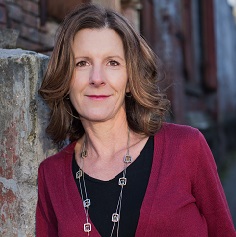
Warning – this blog post contains mild swearing and strong emotion. Tread lightly.
This morning, my husband headed downstairs first when we got up to see if our cat was still alive. Fortunately, she was. She’s fourteen and while not young in cat years, she’s spent the last 13 years making sure not to wear out any of her parts. If you’d asked me a week ago whether I thought we might lose her this week, there’s no way I’d have said yes. She had a small, in-home accident (the worst kind, right?) and her decline has been sudden and worrisome. She’s hanging in there though. Last month my mother-in-law passed away. Six months before that our other cat died. It’s been a tough year of loss and grief and now this comes along.
As a change expert, it’s been interesting to notice my own reaction to the losses of the past year. The extremes in my language have been funny: everything is shit! Shit is not that bad! At times I feel sad and wonder if my quota of grief has been exceeded and other times I’m just super grateful for having known them at all.
Sometimes changes come fast and you don’t see them coming. This is pretty typical of what we see in workplace change, too. When we feel grief, stress, or frustration, our language often becomes distorted because it’s hard to explain what’s going on for us. When a colleague says, “It’s so unfair what’s happening” it is pretty unclear how many thoughts they might have rolled into one statement. If we want to help them, we might start by asking open-ended questions that start with who, what, when, where, or how and to get clear on their specific concerns. It’s much easier to help someone with specifics than vague, distorted, or generalized statements.
We might ask, “What specifically is unfair or what is happening?” As you get more information, you can start asking questions that may guide them toward ways to help themselves, get support from others, or see things from another perspective.
When I asked myself a series of questions, I eventually came around to something I know deep-down is true and rarely think about: there is a cycle to life and nothing lasts forever. Just going through the process of asking questions felt useful and helped change my state from just moping to hopeful – at least for now. Hopeful: I think that’s a 2015 resolution worth making.
Questions:
What are some “bundles” of change going on in your life?
What questions could you ask to help you see them in a new light?
What questions might you ask a colleague who is struggling with change right now?

As usual, my dear and darling friend your writes come at the best times for me. I am in a place, right now, of sorrow. Because of it’s nature and because it involves one of my children and because there is no clear, or even unclear resolution in sight – it feels as if it may never end. Which, as you point out, is not true. It will end one way or another. It has, as so many things do – the possibility of a happy and redeemed ending. Your write was a good reminder that while, at this time, I may be living in a “state of sorrow;” it will, inevitably have some kind of ending. And also a reminder, that so often we’re caused to “live” in many places at almost the same time. I still must come to work and treat our emergency based patients with all the compassion and loving kindness possible; it’s imperative that I bend toward my coworkers and the physicians with whom I work so closely with an attitude of dignity, respect and an understanding of their needs as they work through, often, serious emergency situations. And, on and on and on. And, these interruptions, to my more general state of grief – are good for me – they pull me out of myself, out of worry, out of circular thinking and broaden what could be a pretty collapsed view of the world with an understanding that I am not alone in walking a difficult path right now.
As usual, I’m always grateful for your posts.
Much love,
Skye
Dear Skye,
I’m sorry to hear you are also in the midst of something so difficult with no clear idea of where it is going. What you said about how we are often caused to “live” in many places almost at the same time really resonates with me. We hold our grief/anger/you-name-it in sometimes because that it what’s most called for in the circumstances, in order to be present for someone or something else. I hold a lot of gratitude for that because it’s not about denying our own pain, it’s about being available for something or someone that needs us more right now, or to a greater purpose, knowing that we can come back to ourselves later. Thanks again for staying in the conversations with me over these many months. It means a lot to me.